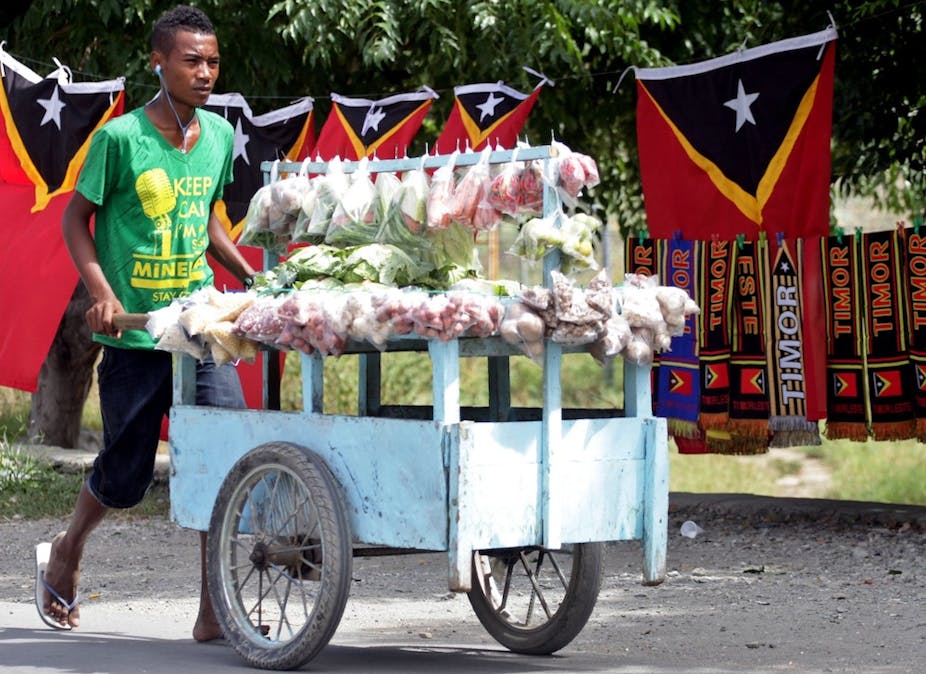Australian mining firms remain at the forefront of natural resource exploration and extraction in some of our nearest - and poorest - neighbours.
Timor Leste, Papua New Guinea and the Solomon Islands are host to numerous Australian domiciled or ASX listed extractive companies, all of whom operate under both Australian corporation law, as well as the individual regulation and legislation of host states.
But as it currently stands, Australian mining firms are not required to disclose payments to governments, unless legislated by the countries in which they are operating.
Conversely, large mining firms headquartered in the US, EU, UK and South Korea are required by their governments to disclose what they pay for the rights to explore and extract natural resources.
This level of disclosure is in line with the aims of the Extractive Industries Transparency Initiative, of which Timor Leste and the Solomons are both signatories. PNG has also signalled its intention to join the initiative by the end of 2013. In EITI implementing countries both the government and companies publish the details of taxation and royalty payments with the hope of creating a climate of transparency and accountability.
One of the greatest challenges facing these states in implementing any kind of transparency legislation is the mismatch in resources (both financial and legal) between small Pacific Island states and large mineral extraction firms.
In a partial response, the United States has added a measure into its Dodd–Frank Wall Street Reform and Consumer Protection Act which demands all SEC listed oil, gas and mining firms publish the taxation and royalty payments they make to overseas governments.
Not only do payments have to be publicised but they must be done so at a country and project level.
Similarly, the European Union has recently agreed on amendments to their Accounting Directive which will be voted on in July. The amendments make the same demands of EU domiciled companies (even those not listed on a stock exchange) and extend them to the forestry sector. These legislative changes are in addition to those made in the UK and South Korea.
Australia’s tardiness on this issue is not going unnoticed. The recent EITI Global Conference saw 1,400 delegates gather in Sydney to discuss experiences with and ways to improve the transparency initiative.
A notable feature amid the busy agenda was the recurring suggestion that countries where large resource players are headquartered, or listed, should be obligated to take responsibility for these firms’ actions.
The calls for this kind of legislation to be implemented outside the United States and EU came from mining and mineral ministers of countries as diverse as Ethiopia, Timor Leste and Germany as well as from global coalition, Publish What You Pay.
There was little doubt many of these comments were pointedly directed at Australia (and for similar reasons, Canada), two countries whose mining companies continue to break new ground all over the world yet remain free from such legislation.
Yet it is clear from Timor Leste and Solomon Islands delegations that they desire more open and transparent relationships with Australian mine and gas firms, which play a crucial role in these economies.
Australia has the opportunity to assist not only in achieving the aims of the EITI, but in securing accountable and responsible leadership in its nearest neighbours – an opportunity it has not yet fully harnessed.
If Australian mining companies were required, by law, to publish the fiduciary details of their relationships with governments around the world, much of the challenge in EITI implementation for small Pacific Island states would have been effectively achieved.
This would not only circumvent the negotiating issues noted earlier, but would free up the limited resources of each in-country EITI team to focus on the publication and dissemination of the information collected as part of the transparency process.
As is stands, Australia remains out of step with the rest of the international community in demanding transparency and disclosure of its companies operating in overseas jurisdictions. The benefits of an open and transparent mining sector in developing states are clear, and include increased stability along with reduced poverty. This is an opportunity for Australia to play a positive role in its region.
Legislating requirements for ASX-listed firms to publish what they pay foreign governments would not only reduce the burden on our under-resourced neighbours, but would contribute to assurances that the money spent by mining firms in these countries reached those who most need it.
As I was told by a member of the Timorese delegation – “Timor Leste is a very rich country, but if you come and have a look, we are also very poor”. Australia has an opportunity, if not an obligation, to ensure its mining firms aren’t contributing to this paradox.

